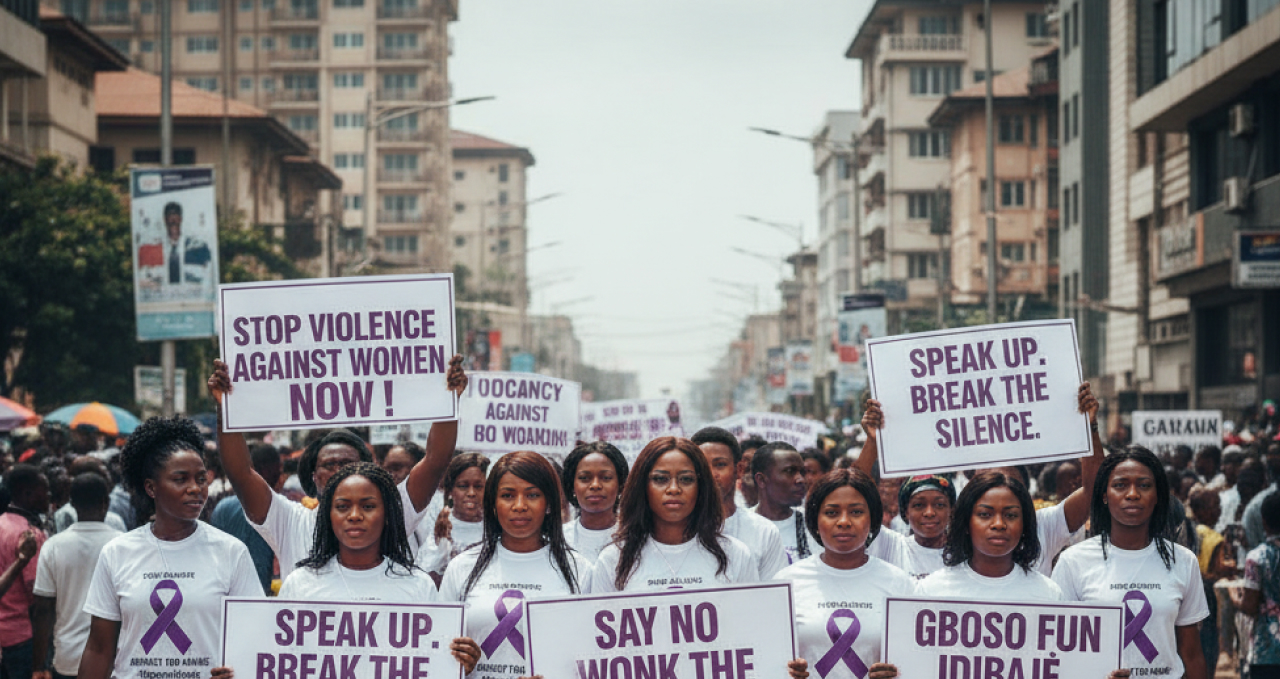Violence against women is a critical issue that requires urgent attention and awareness, particularly in Nigeria where various forms of violence are prevalent. It is crucial to recognise that any act of violence against any person, regardless of gender, is a crime. However, statistics indicate that women are mostly affected by various forms of violence.
The most common forms of Violence Against Women include but not limited to;
1. Genital Mutilation- A harmful practice that affects many women and girls, often leading to severe physical and psychological consequences.
2. Rape and Sexual Assault- A heinous act that is unfortunately common and can have devastating effects on victims, both physically and emotionally.
3. Physical Assault- This includes domestic violence and other forms of physical harm directed towards women.
4. Economic Abuse- This form of violence restricts women's financial independence and access to resources, which can be just as damaging as physical violence. This is so systemically done to disenfranchise women from financial freedom in order to hold her in the state of perpetual abuse.
5. Discrimination and Verbal Abuse- Women often face systemic discrimination and verbal abuse, which contribute to a culture of violence and oppression.
6. Child Marriage- This practice not only violates the rights of young girls but also exposes them to various forms of violence and abuse.
Violence against women has grown into a multifaceted issue that extends beyond the above mentioned. It now encompasses various forms of abuse, including cyber violence, which has become increasingly prevalent in recent years. This includes acts such as revenge porn, where intimate images are shared without consent, and child pornography, which exploits vulnerable individuals. Additionally, trafficking remains a significant concern, further complicating the landscape of violence against women.
Domestic violence is a global issue that transcends geographical boundaries. In Nigeria, the laws against these acts of violence exist, yet enforcement and societal attitudes often hinder their effectiveness. The Violence Against Persons Prohibition Act (VAPP) 2015 is a critical piece of legislation that explicitly defines acts of violence as crimes, outlining that such behaviours are punishable offences. This VAPP provides a framework for holding abusers accountable and offers protections for victims. Additionally, the Evidence Act (Amendment Act) 2023 has made strides by including provisions that allow for the use of electronic evidence in court.
This is a crucial development, as it enables victims of cyber violence to present digital proof of their abuse, thereby strengthening their cases in legal proceedings. Such legal frameworks are made to ensure that justice is served and that victims have the means to seek redress but a significant issue which may hinder the ffectiveness of such legislation is the response of law enforcement agencies, which often encourage the cycle of abuse. Victims may find themselves sent back to their abusers with the message that their situation is simply a domestic issue to resolve privately. This approach is fundamentally flawed and fails to protect victims and has created a lack of fear among perpetrators regarding the consequences of their actions. This is alarming and indicative of systemic failures within the legal and societal frameworks of Nigeria as a country.
Advocacy plays a crucial role in the fight against domestic violence, especially in contexts where victims are often unaware of their rights and the legal protections available to them. In Nigeria, domestic violence is notably prevalent among less educated populations. Many victims may not recognize that they are experiencing a crime, and even if they do, they often lack knowledge about the steps to take for seeking justice. As the saying goes, “knowledge is power”. By educating communities about domestic violence and the resources available, we can enable victims to stand up for themselves and seek help through the appropriate channels. This empowerment is vital in breaking the cycle of abuse and fostering a safer environment for all.
However, it is essential for advocacy efforts to go beyond academic discussions and engage with real-life issues faced by victims. Awareness campaigns and educational initiatives can empower individuals to recognise domestic violence and understand their rights.
The fight against domestic violence in Nigeria requires a concerted effort to promote awareness, educate and empower victims, and ensure that legal protections are effectively enforced. Advocacy is not just about raising awareness; it's about creating tangible change in the lives of those affected. Furthermore, the organisations responsible for protecting women must be trustworthy and effective in their roles, providing the necessary support and advocacy to empower victims. They must also be held accountable most importantly the law enforcement bodies.
In conclusion, addressing Violence against women in Nigeria is a complex issue that requires not just continuous dialogue and education, but also enforcement of existing laws on Domestic violence and abuse, establishment of reliable support systems which may include provision of temporary shelter for victims, legal protections, and most importantly empowerment of victims and survivors. By bringing attention to these matters, we can work towards a safer environment for every woman who has faced disproportionate levels of violence.

